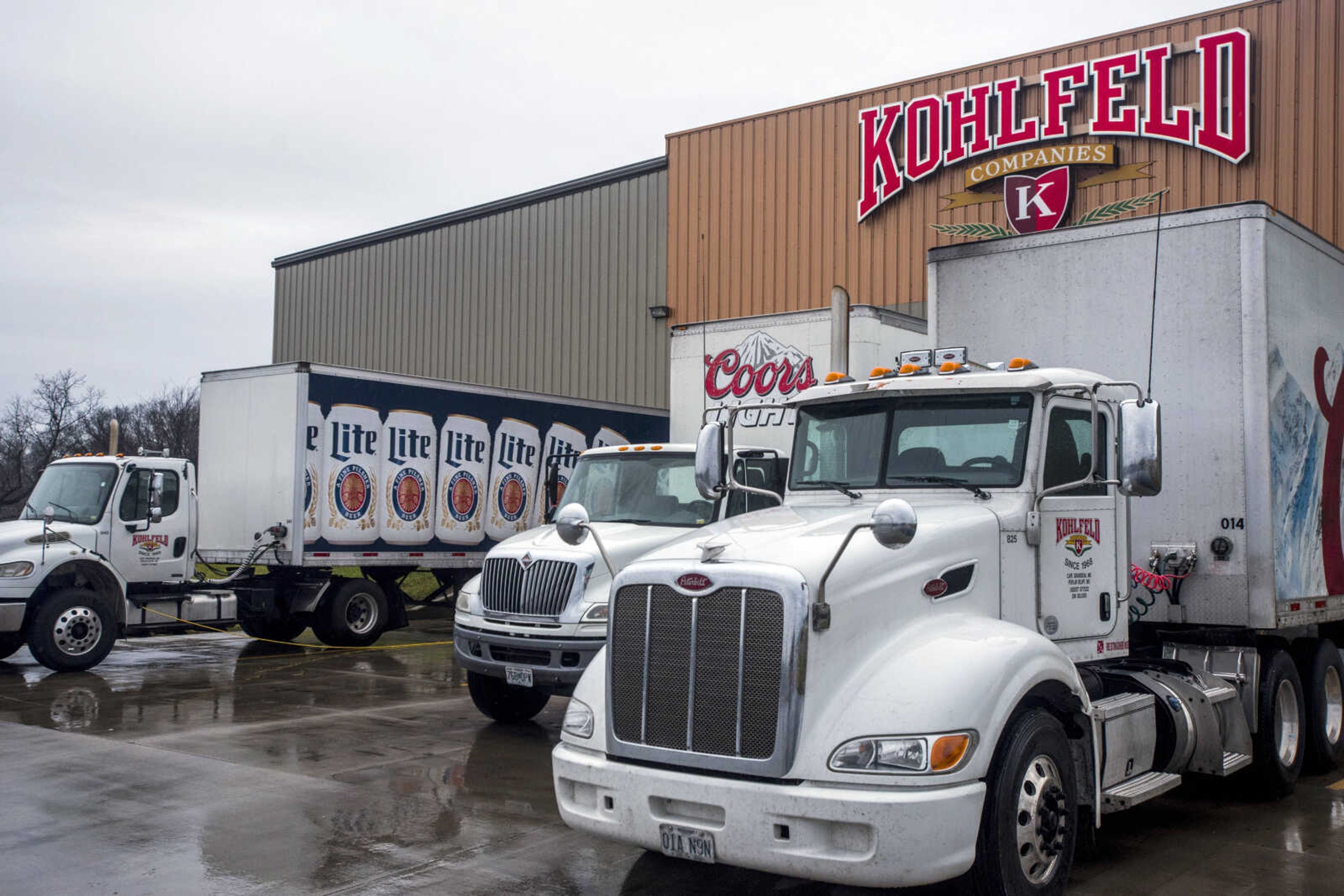Local businesses accelerate growth by mergers, acquisitions
All businesses want to grow, but there are different ways and strategies to execute that growth. One of the fastest and most dramatic ways they enact a rapid growth strategy is through mergers and acquisitions. While large mergers often make the national headlines, mergers or acquisitions also happen locally with smaller companies and businesses...
All businesses want to grow, but there are different ways and strategies to execute that growth.
One of the fastest and most dramatic ways they enact a rapid growth strategy is through mergers and acquisitions. While large mergers often make the national headlines, mergers or acquisitions also happen locally with smaller companies and businesses.
For example, in June, Kohlfield Distributing acquired the majority of Bluff City Beer Co. Over the years, several banks have merged or have been acquired. Hospitals regularly acquire smaller medical clinics. And sometimes smaller business owners sell their companies to competitors when they're ready to retire or move on.
Mergers and acquisitions can be complicated transactions, and experts say business owners should go in with their eyes wide open.
Jennifer Hendrickson with Hendrickson Business Advisors and Murphy Business Sales in Cape Girardeau, explains that a merger "is when two companies come together strategically to join forces and create a brand new company together. An acquisition is when one company is buying another company and will absorb the target into its own operations."
Mergers typically make sense if the two entities are of a similar size, are friendly and cooperative with each other, and feel they'll be stronger together under a new brand, she said.
An acquisition usually involves a larger company acquiring a smaller one, might not be as cooperative, and the acquiring company dictates the future of the products, services, employees, vendors, customers, and so on.
"Both are valid growth strategies," Hendrickson said.
Cape Girardeau Area Chamber of Commerce president and CEO John Mehner has been with the chamber for 25 years, and he's seen many mergers and acquisitions in that time, and normally sees adjustments and challenges at the beginning, usually followed by a better, stronger single entity afterward.
Another local company with experience growing by blending is United Rentals. It's a Fortune 500 company with more than 1,000 locations in North America, with 15,000 employees.
United Rentals, headquartered in Connecticut, bought Cape Girardeau company RSC about six years ago, said territory sales manager Kathy Kraemer, and the Cape Girardeau branch is moving to a new location on Nash Road this month.
"In a merger, we gain more than market share and equipment," Kraemer said.
Kraemer noted not all clients automatically come along when a company is acquired. And she said employees need a lot of assurances.
"Change makes people nervous," she said.
For United Rentals, Kraemer said, mergers or acquisitions are more about company growth than about buying up the competition, Kraemer said.
"We consider the greatest acquisition, the people," Kraemer said.
Generally speaking, workers in existing companies are well-versed in what local clients want, Kraemer said, and are trained in the industry.
That institutional knowledge is valuable, she said.
Planning the transition is vital, Hendrickson said.
Not to minimize the importance of executing the deal itself, but key challenges Hendrickson mentioned are related to communication, employees and culture.
"...Transactions don't just happen; they are carefully planned with leadership teams, accountants, attorneys, and an intermediary to lead the charge," Hendrickson said.
Too often, she continued, not enough thought is given to a comprehensive communication strategy involving employees, customers, partners, shareholders and vendors, she said.
"They also underestimate the amount of angst and uncertainty employees have as well as clearly articulating the new cultural expectations," she added.
Kraemer said when RSC and United Rentals merged six years ago, she was initially a bit nervous, too.
"United had to kind of woo me," Kraemer said, as she had formerly been with RSC.
Company leaders moved fast, and that minimized the anxiety, Kraemer said.
"Within the first 24 hours (of the merger), they said, 'Everyone's got a job,'" Kraemer said.
"I think the biggest thing at the forefront is, respect the person," Kraemer continued. "Be inclusive."
Making sure people felt included and wanted was also important, she said. Training began right away, and new uniforms were handed out as soon as possible.
"Experience tells us, people need to be trained well," Kraemer added.
And, she said, the big question that had to be answered for each worker: "Am I going to like it here?"
"The company had to ease employee fear, so we could ease client fear," Kraemer said, adding she contacted every client when the merger happened to let them know what to expect.
Hendrickson said it's important to make allowances for what happens after the transition, too.
Company culture can be tough to navigate, she said: "People will naturally want their previous culture to dominate the new entity, but if one company previously had a sales mentality while the other company had a focus on innovation, there will be many casualties on both sides. Blending cultures is difficult and requires change of everyone involved."
mniederkorn@semissourian.com
(573) 388-3630
Connect with the Southeast Missourian Newsroom:
For corrections to this story or other insights for the editor, click here. To submit a letter to the editor, click here. To learn about the Southeast Missourian’s AI Policy, click here.











